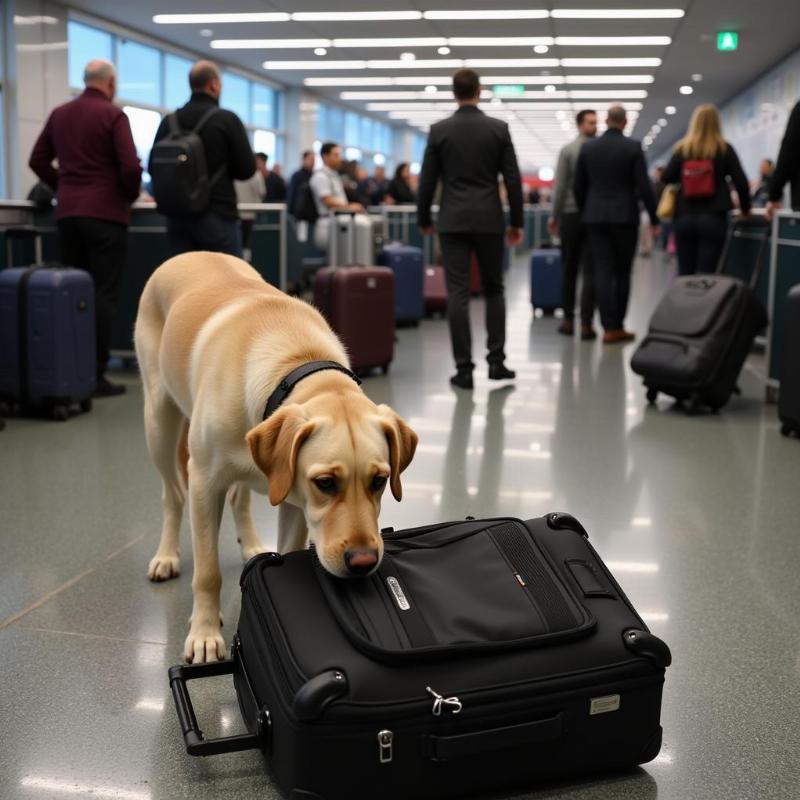Drug sniffing dogs, also known as detection dogs or K9 units, play a crucial role in law enforcement, security, and border control across the United States. The demand for highly trained canines capable of detecting illicit substances is constantly growing. This comprehensive guide aims to provide valuable insights into the world of drug sniffing dogs for sale, addressing key considerations for potential buyers and emphasizing ethical and responsible acquisition.
Understanding the Roles of Drug Sniffing Dogs
Drug sniffing dogs are invaluable assets in various sectors, contributing significantly to public safety and security. Their highly developed sense of smell allows them to detect even trace amounts of illegal substances, making them highly effective in identifying hidden drugs. Commonly used breeds include German Shepherds, Belgian Malinois, Labrador Retrievers, and Beagles, each selected for specific traits like trainability, stamina, and temperament.
Law Enforcement and Security
In law enforcement, these canines are instrumental in drug busts, vehicle searches, and building sweeps. Their presence acts as a deterrent, discouraging drug trafficking and related criminal activities. Private security firms also employ drug sniffing dogs to protect businesses, warehouses, and other sensitive locations.
Border Control and Customs
At border crossings and airports, these dogs play a crucial role in intercepting smuggled drugs and other contraband, safeguarding national borders and preventing the flow of illicit substances.
 Drug Dog Performing Search at Airport
Drug Dog Performing Search at Airport
Finding Reputable Drug Sniffing Dog Breeders and Trainers
Acquiring a drug sniffing dog requires careful consideration and research. It’s crucial to find reputable breeders and trainers who prioritize the well-being and proper development of their dogs.
American Kennel Club (AKC) Resources
The AKC offers valuable resources for finding breeders committed to upholding breed standards and ethical practices. While the AKC doesn’t specifically certify drug sniffing dogs, it can help you locate breeders of suitable breeds.
Trainer Qualifications and Certifications
Ensure the trainer has extensive experience in scent detection training and utilizes positive reinforcement methods. Look for certifications from recognized organizations.
Legal and Ethical Considerations
Owning and deploying a drug sniffing dog comes with legal and ethical responsibilities. Understanding these is paramount for responsible ownership.
State and Local Regulations
Familiarize yourself with specific regulations regarding the use of drug sniffing dogs in your state. Some states may require licensing or certifications for handlers.
Responsible Handling and Care
Providing proper care, training, and socialization is essential for the dog’s well-being and effectiveness. This includes regular veterinary checkups, a balanced diet, and ongoing training to maintain their skills.
Cost Considerations for Drug Sniffing Dogs
The cost of a trained drug sniffing dog can vary significantly, depending on the breed, training level, and experience. Factor in ongoing expenses like food, veterinary care, and continuing education.
Conclusion
Acquiring a drug sniffing dog is a significant commitment requiring careful consideration of various factors, including breed selection, training requirements, legal and ethical implications, and ongoing costs. By understanding these aspects and seeking reputable breeders and trainers, you can contribute to the critical work of drug detection while ensuring the well-being of these highly skilled canines.
FAQ
- How long does it take to train a drug sniffing dog? Training can take several months to a year, depending on the dog’s aptitude and the complexity of the detection tasks.
- What are the most common breeds used for drug detection? German Shepherds, Belgian Malinois, Labrador Retrievers, and Beagles are frequently chosen for their trainability and scent detection abilities.
- Are there certifications for drug sniffing dog handlers? Yes, several organizations offer handler certifications, ensuring proper training and handling techniques.
- What is the average cost of a trained drug sniffing dog? Prices can range from several thousand to tens of thousands of dollars, depending on the dog’s training and experience.
- What are the legal requirements for owning a drug sniffing dog? Regulations vary by state and local jurisdictions; it’s crucial to research specific requirements in your area.
- What kind of ongoing training is needed for a drug sniffing dog? Regular training and practice are essential to maintain the dog’s skills and proficiency.
- Where can I find reputable breeders and trainers? The American Kennel Club (AKC) and other breed-specific organizations can be valuable resources.
Related Articles on Beautdogs.us
Beautdogs.us is your premier online resource for all things dog-related in the United States. We offer expert advice on dog breeds, care, training, and products. Whether you’re a seasoned dog owner or just starting your journey with a canine companion, Beautdogs.us provides trustworthy and comprehensive information to help you provide the best possible care for your furry friend. Contact us for expert guidance: Email: [email protected], Phone: +1 501-555-7529.